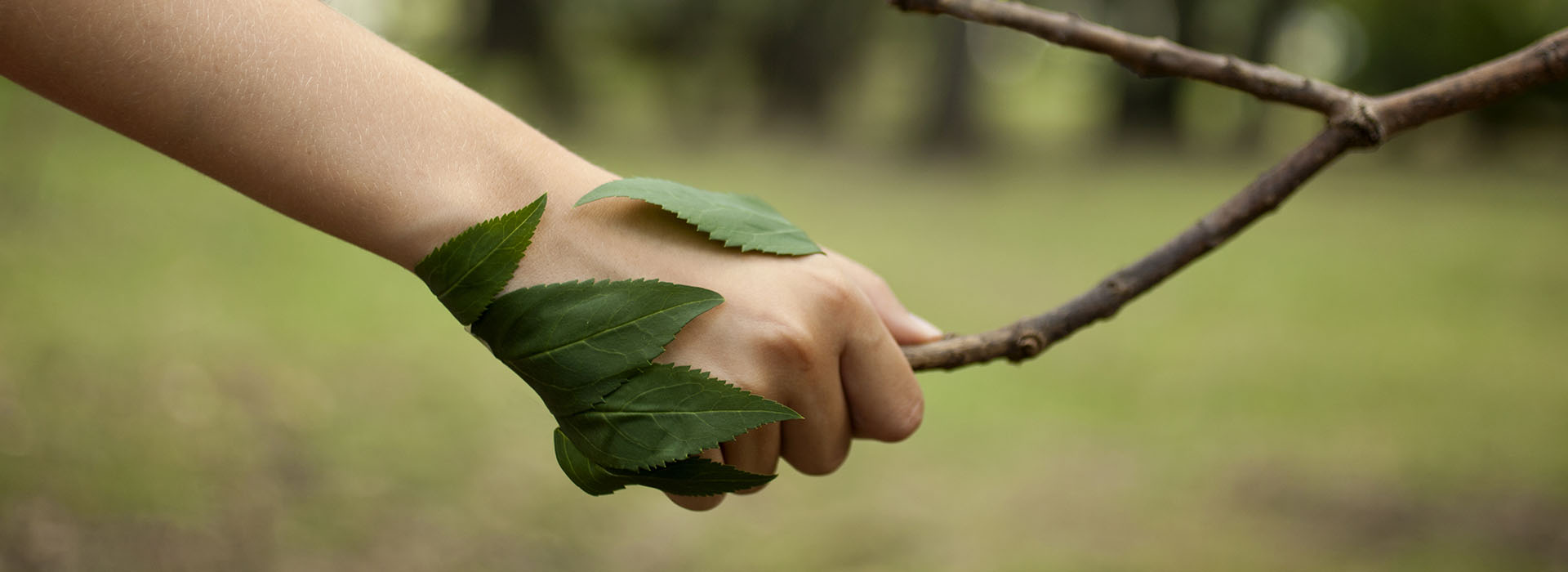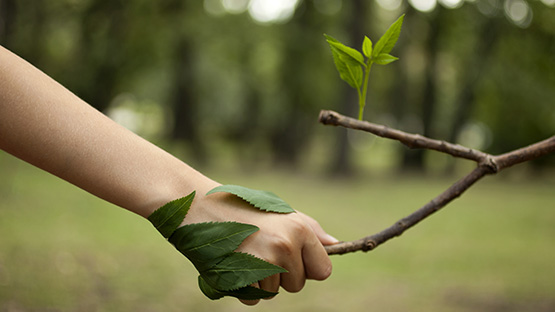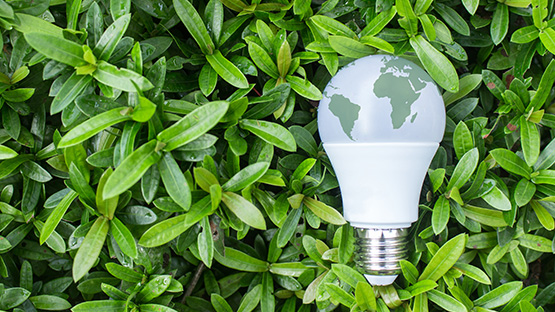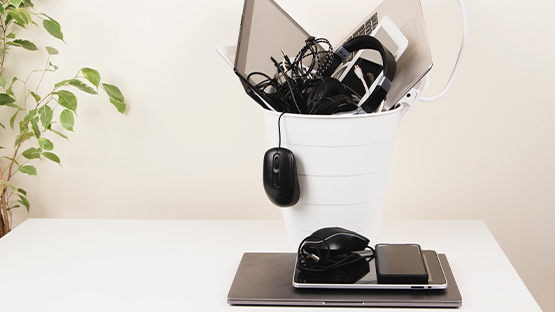Everyday ecology - daily habits and choices for a better future
Ecology

10 February 2023
Is everyday ecology possible? Absolutely! Environmentally friendly attitudes in many cases do not require much sacrifice. It is enough to learn a few rules in order to do your bit to protect our planet. How do you do it? You will find simple ways to be eco-friendly in this article.
Everyday ecology, or what we can do for our planet
How to live ecologically? The first step in helping to lead an ecological lifestyle is to notice those habits that are harmful to nature. Next, these habits need to be replaced by nature-friendly alternatives. The final phase of action is to apply eco habits consistently in daily life.
It makes sense to start green actions by changing your shopping habits. Ways to live green range from careful decision-making when buying food to clothing. It is also worth considering your diet. Green living also includes a new approach to modes of transport and the amount of water and electricity you use.
Everyday habits matter - saving water and electricity
Everyday ecology includes saving water and electricity. Many of the suggestions below are low-effort measures.
Saving water, or basic ecology on a daily basis
Washing dishes is one of those activities where water is often used in excess. If you want to save it, don't wash your cups, plates and cutlery under the running stream. Instead, use a water-filled sink at home and only rinse them after washing them.
If you can afford such an acquisition, invest in a dishwasher. It is a very eco-friendly appliance. By using a dishwasher, your water consumption can drop by up to ⅓ and contribute to lower water bills in the process.
The kitchen is just one of the places where green measures are possible. Examples of others you can apply in the bathroom. First and foremost, it is worth reducing bathing in the bath in favour of washing in the shower.
Water can also be saved when washing hands, teeth and hair. When it is not needed (e.g. when soaping your hands or brushing your teeth), simply turn off the tap.
You can also flush the toilet ecologically. Usually flush toilets have one button that empties the tank of water. There are also environmentally friendly flushers with two buttons. This makes it possible to select more or less water for flushing.
Ecology and saving electricity
Sometimes we don't realise how simple eco solutions are. You might find an example of this in your daily habit of not switching off the TV. It is a good idea to switch it off if you are not watching TV at the time.
The same is true of the computer. Sleep mode can be useful, but should not be abused. If you know you won't be using it for a long time, turn it off. Similar principles can be applied to, for example, games consoles.
Everyday ecology also means reducing the power consumption of running appliances. The European Union's changing requirements for household appliances are making them more and more energy-efficient.
If possible, it is therefore worth gradually replacing old appliances with new ones. These often have an eco-mode that saves water and electricity. In a similar way, you can also save light. Older light bulbs can be replaced by energy-saving bulbs. However, it is important not to throw away functional but unnecessary appliances, but to sell them or donate them to the needy.
Another way to live an eco-friendly lifestyle is to use pot lids when cooking. This way, the correct temperature inside will be reached faster and cooking will take less time.
Everyday ecology - why avoid plastic?
Saving energy is not the only behaviour for people who are considering how to be eco-friendly at home. Eco-friendly measures should also include using as little plastic as possible.
The simplest method is to dispense with plastic bags. Products such as fruit and vegetables can be packed loosely in a paper bag, for example. Even if it is thrown away, it is more nature-friendly. Paper takes about six months to decompose, whereas plastic takes up to 100 years or more.
Plastic packaging can also be eliminated when purchasing beverages. If possible, it is better to use glass bottles. You can use a cotton bag to store your purchases.
Eco-friendly solutions can also be found in the habit of preparing meals for work. Instead of packing your sandwiches in plastic bags or even breakfast paper, you can buy a breakfast container made of wood, for example.
Unfortunately, getting rid of plastic completely from our lives, at least for the time being, is not possible. Many products are sold in plastic packaging. Greening the home should therefore also involve separating rubbish, i.e. separate bags for different types of waste, which can then be recycled.
Changing your diet versus going green - is being vegan greener?
Dealing with the topic of environmentally conscious shopping naturally leads to questions about what kind of diet is environmentally friendly. Opinions are divided on this subject. It is therefore worth pointing out at the outset that, regardless of the daily menu, it is possible to eat more ecologically.
The undoubted advantage of a vegetarian, and especially vegan, diet is that it contributes to reducing the suffering of industrially farmed animals. Meat production is also costly due to the significant use of water. Among other things, it is needed to cool the farms or to water the plants needed for animal feed. Growing fodder unfortunately requires clearing forests needed for farmland.
However, the answer to questions about an organic diet is not necessarily simple. For the production of plant food, forests are also cleared. What is more, the pesticides used in agriculture adversely affect plants, animals and micro-organisms. They also seep into the groundwater.
So how do you eat eco? Unfortunately, we have no control over industrial crops. However, people who do not eat meat can choose organically produced products. Everyday ecology can also be applied by people who eat meat. Instead of industrially farmed animals, they can buy meat from organic farms.
Shopping choices and ecology, or the threat from fast fashion
Everyday ecology in people's lives sometimes requires giving up the convenience of shopping in shopping malls and online. The best example of this is fast fashion. This term refers to the creation of clothes inspired by creations known from the catwalks. A characteristic feature is the short time it takes to create and sell a collection, as well as the deliberately low quality of such clothes.
Examples of fast fashion can be found, for example, in shopping malls. Constant promotions organised by the biggest clothing companies mean that the product range is soon changed. Anything that has not been sold is discarded. The same is true of the online giants.
Fast fashion clothes are, moreover, produced in an extremely environmentally unfriendly way. Huge amounts of water are used in their manufacture. Moreover, toxic dyes are poured into rivers and other bodies of water, which quickly become biologically dead. 
Clothes from large corporations can replace the eco stuff. It is advisable to choose clothes with certificates that prove the manufacturer cares about the environment (e.g. from organically grown cotton) or made from material that has gone through a recycling process. You may also be interested in buying clothes in second-hand shops.
Everyday ecology - switching to an electric car
Green solutions at home can also be combined with those related to transport. Buying an electric car is a way to reduce greenhouse gas emissions such as carbon dioxide, nitrous oxide, hydrogen sulphide and methane.
Car exhaust penetrates the environment, leading to climate change. A warming climate causes rising sea levels, violent atmospheric events (e.g. tornadoes), extinction of wildlife and disruption of plant vegetation.
Of course, not every person can afford to buy an electric car. Going green every day also means choosing public transport over individual transport wherever possible.
Everyday ecology and education - how to teach being eco to new generations?
The ecological solutions outlined in this article are worth instilling from an early age. Children are more likely than adults to change their habits. It is therefore worthwhile for your child to separate their rubbish.
The child can also be taught to turn off the tap when brushing his or her teeth and hands. It is also a good idea to remind the child to switch off the computer, console or television. It is also the adult's job to explain to the child why such behaviour is important.
Everyday environmentalism is the best way to protect our planet. Pro-ecological behaviour contributes to protecting the environment in which we live. It is worth changing our habits, because the future depends only on us.
Czytaj również






